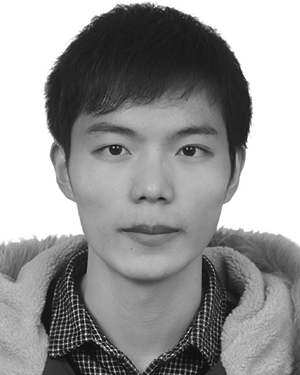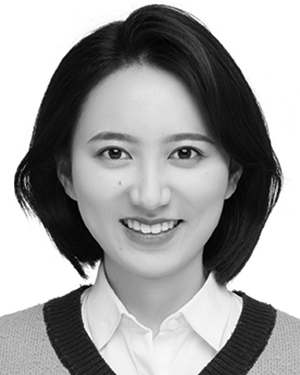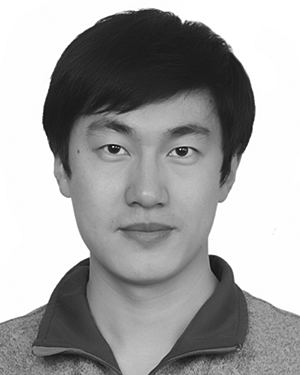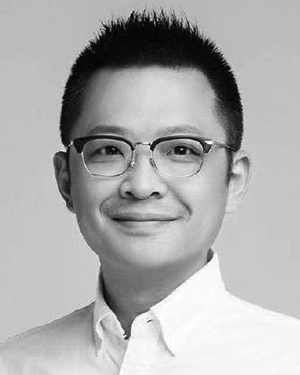Abstract:
Deep learning (DL) libraries reduce the barriers to the DL model construction. In DL libraries, various building blocks are DL operators with different functionality, res...Show MoreMetadata
Abstract:
Deep learning (DL) libraries reduce the barriers to the DL model construction. In DL libraries, various building blocks are DL operators with different functionality, responsible for processing high-dimensional tensors during training and inference. Thus, the quality of operators could directly impact the quality of models. However, existing DL testing techniques mainly focus on robustness testing of trained neural network models and cannot locate DL operators’ defects. The insufficient test input and undetermined test output in operator testing have become challenging for DL library developers. In this article, we propose an approach, namely Duo, which combines fuzzing techniques and differential testing techniques to generate input and evaluate corresponding output. It implements mutation-based fuzzing to produce tensor inputs by employing nine mutation operators derived from genetic algorithms and differential testing to evaluate outputs’ correctness from multiple operator instances. Duo is implemented in a tool and used to evaluate seven operators from TensorFlow, PyTorch, MNN, and MXNet in an experiment. The result shows that Duo can expose defects of DL operators and realize multidimension evaluation for DL operators from different DL libraries.
Published in: IEEE Transactions on Reliability ( Volume: 70, Issue: 4, December 2021)
Funding Agency:

State Key Laboratory for Novel Software Technology, Nanjing University, Nanjing, China
Xufan Zhang received the B.E. and M.E. degrees in software engineering from Nanjing University, Jiangsu, China in 2015 and 2017, respectively. He is currently working toward the Ph.D. degree in software engineering with the State Key Laboratory for Novel Software Technology at Nanjing University, Jiangsu.
Xufan Zhang received the B.E. and M.E. degrees in software engineering from Nanjing University, Jiangsu, China in 2015 and 2017, respectively. He is currently working toward the Ph.D. degree in software engineering with the State Key Laboratory for Novel Software Technology at Nanjing University, Jiangsu.View more

State Key Laboratory for Novel Software Technology, Nanjing University, Nanjing, China
Jiawei Liu received the B.E. and M.E. degrees in software engineering in 2019 and 2021, respectively. She is currently working toward the Ph.D. degree in software engineering with the State Key Laboratory for Novel Software Technology, Nanjing University, Jiangsu, China.
Her research interests include in testing deep learning libraries, evaluation of data quality, data augmentation, etc.
Jiawei Liu received the B.E. and M.E. degrees in software engineering in 2019 and 2021, respectively. She is currently working toward the Ph.D. degree in software engineering with the State Key Laboratory for Novel Software Technology, Nanjing University, Jiangsu, China.
Her research interests include in testing deep learning libraries, evaluation of data quality, data augmentation, etc.View more

State Key Laboratory for Novel Software Technology, Nanjing University, Nanjing, China
Ning Sun received the B.E. degree in information management and information system from Soochow University, Jiangsu, China, in 2020. She is currently working toward the M.E. degree in software engineering with Nanjing University, Jiangsu.
Ning Sun received the B.E. degree in information management and information system from Soochow University, Jiangsu, China, in 2020. She is currently working toward the M.E. degree in software engineering with Nanjing University, Jiangsu.View more

State Key Laboratory for Novel Software Technology, Nanjing University, Nanjing, China
Chunrong Fang received the B.E. and Ph.D. degrees in software engineering in 2010 and 2017, respectively, from Software Institute, Nanjing University, Jiangsu, China.
He is currently a Research Assistant with the Software Institute, Nanjing University. He is also the Director of Nanjing University-Shudui Joint Research Center. His research interests include intelligent software engineering, e.g., BigCode and AITesting.
Chunrong Fang received the B.E. and Ph.D. degrees in software engineering in 2010 and 2017, respectively, from Software Institute, Nanjing University, Jiangsu, China.
He is currently a Research Assistant with the Software Institute, Nanjing University. He is also the Director of Nanjing University-Shudui Joint Research Center. His research interests include intelligent software engineering, e.g., BigCode and AITesting.View more

State Key Laboratory for Novel Software Technology, Nanjing University, Nanjing, China
Jia Liu received the B.S. degree in computational mathematics, the M.S. degree in information science, and the Ph.D. degree in systems engineering from Nanjing University, Jiangsu, China, in 1998, 2005, and 2021, respectively.
He is an Associate Professor with Software Institute, Nanjing University. He owns more than 20 patents, and some of his patents have been transferred to well-known software companies such as Baidu, A...Show More
Jia Liu received the B.S. degree in computational mathematics, the M.S. degree in information science, and the Ph.D. degree in systems engineering from Nanjing University, Jiangsu, China, in 1998, 2005, and 2021, respectively.
He is an Associate Professor with Software Institute, Nanjing University. He owns more than 20 patents, and some of his patents have been transferred to well-known software companies such as Baidu, A...View more

HiSilicon, Huawei, Shanghai, China
Jiang Wang received the M.S. degree in power system and automation from the Harbin Institute of Technology, Harbin, China, in 2000.
He is currently a AI Testing Expert with Huawei, Shanghai, China. His research interests include AITesting and Software Engineering.
Jiang Wang received the M.S. degree in power system and automation from the Harbin Institute of Technology, Harbin, China, in 2000.
He is currently a AI Testing Expert with Huawei, Shanghai, China. His research interests include AITesting and Software Engineering.View more

HiSilicon, Huawei, Shanghai, China
Dong Chai received the M.S. degree in precision instruments and machinery from Shanghai University, Shanghai, China, in 2006.
He is currently a Software Engineering Testing Expert with Huawei, Shanghai. His research interests include software engineering and AI testing.
Dong Chai received the M.S. degree in precision instruments and machinery from Shanghai University, Shanghai, China, in 2006.
He is currently a Software Engineering Testing Expert with Huawei, Shanghai. His research interests include software engineering and AI testing.View more

State Key Laboratory for Novel Software Technology, Nanjing University, Nanjing, China
Zhenyu Chen received the B.S. degree in information and computer science and the Ph.D. degree in fundamental mathematics from Nanjing University, Jiangsu, China, in 2001 and 2006, respectively.
He is a Professor with Software Institute, Nanjing University, Jiangsu, China. He has authored or coauthored more than 100 papers in the leading academic conferences and journals such as TOSEM, TSE, ICSE, FSE, ISSTA, ICST, etc. He i...Show More
Zhenyu Chen received the B.S. degree in information and computer science and the Ph.D. degree in fundamental mathematics from Nanjing University, Jiangsu, China, in 2001 and 2006, respectively.
He is a Professor with Software Institute, Nanjing University, Jiangsu, China. He has authored or coauthored more than 100 papers in the leading academic conferences and journals such as TOSEM, TSE, ICSE, FSE, ISSTA, ICST, etc. He i...View more

State Key Laboratory for Novel Software Technology, Nanjing University, Nanjing, China
Xufan Zhang received the B.E. and M.E. degrees in software engineering from Nanjing University, Jiangsu, China in 2015 and 2017, respectively. He is currently working toward the Ph.D. degree in software engineering with the State Key Laboratory for Novel Software Technology at Nanjing University, Jiangsu.
Xufan Zhang received the B.E. and M.E. degrees in software engineering from Nanjing University, Jiangsu, China in 2015 and 2017, respectively. He is currently working toward the Ph.D. degree in software engineering with the State Key Laboratory for Novel Software Technology at Nanjing University, Jiangsu.View more

State Key Laboratory for Novel Software Technology, Nanjing University, Nanjing, China
Jiawei Liu received the B.E. and M.E. degrees in software engineering in 2019 and 2021, respectively. She is currently working toward the Ph.D. degree in software engineering with the State Key Laboratory for Novel Software Technology, Nanjing University, Jiangsu, China.
Her research interests include in testing deep learning libraries, evaluation of data quality, data augmentation, etc.
Jiawei Liu received the B.E. and M.E. degrees in software engineering in 2019 and 2021, respectively. She is currently working toward the Ph.D. degree in software engineering with the State Key Laboratory for Novel Software Technology, Nanjing University, Jiangsu, China.
Her research interests include in testing deep learning libraries, evaluation of data quality, data augmentation, etc.View more

State Key Laboratory for Novel Software Technology, Nanjing University, Nanjing, China
Ning Sun received the B.E. degree in information management and information system from Soochow University, Jiangsu, China, in 2020. She is currently working toward the M.E. degree in software engineering with Nanjing University, Jiangsu.
Ning Sun received the B.E. degree in information management and information system from Soochow University, Jiangsu, China, in 2020. She is currently working toward the M.E. degree in software engineering with Nanjing University, Jiangsu.View more

State Key Laboratory for Novel Software Technology, Nanjing University, Nanjing, China
Chunrong Fang received the B.E. and Ph.D. degrees in software engineering in 2010 and 2017, respectively, from Software Institute, Nanjing University, Jiangsu, China.
He is currently a Research Assistant with the Software Institute, Nanjing University. He is also the Director of Nanjing University-Shudui Joint Research Center. His research interests include intelligent software engineering, e.g., BigCode and AITesting.
Chunrong Fang received the B.E. and Ph.D. degrees in software engineering in 2010 and 2017, respectively, from Software Institute, Nanjing University, Jiangsu, China.
He is currently a Research Assistant with the Software Institute, Nanjing University. He is also the Director of Nanjing University-Shudui Joint Research Center. His research interests include intelligent software engineering, e.g., BigCode and AITesting.View more

State Key Laboratory for Novel Software Technology, Nanjing University, Nanjing, China
Jia Liu received the B.S. degree in computational mathematics, the M.S. degree in information science, and the Ph.D. degree in systems engineering from Nanjing University, Jiangsu, China, in 1998, 2005, and 2021, respectively.
He is an Associate Professor with Software Institute, Nanjing University. He owns more than 20 patents, and some of his patents have been transferred to well-known software companies such as Baidu, Alibaba, and Huawei. His research interests include developer social networks, swarm intelligence, big data quality metric, and AI testing and optimization.
Jia Liu received the B.S. degree in computational mathematics, the M.S. degree in information science, and the Ph.D. degree in systems engineering from Nanjing University, Jiangsu, China, in 1998, 2005, and 2021, respectively.
He is an Associate Professor with Software Institute, Nanjing University. He owns more than 20 patents, and some of his patents have been transferred to well-known software companies such as Baidu, Alibaba, and Huawei. His research interests include developer social networks, swarm intelligence, big data quality metric, and AI testing and optimization.View more

HiSilicon, Huawei, Shanghai, China
Jiang Wang received the M.S. degree in power system and automation from the Harbin Institute of Technology, Harbin, China, in 2000.
He is currently a AI Testing Expert with Huawei, Shanghai, China. His research interests include AITesting and Software Engineering.
Jiang Wang received the M.S. degree in power system and automation from the Harbin Institute of Technology, Harbin, China, in 2000.
He is currently a AI Testing Expert with Huawei, Shanghai, China. His research interests include AITesting and Software Engineering.View more

HiSilicon, Huawei, Shanghai, China
Dong Chai received the M.S. degree in precision instruments and machinery from Shanghai University, Shanghai, China, in 2006.
He is currently a Software Engineering Testing Expert with Huawei, Shanghai. His research interests include software engineering and AI testing.
Dong Chai received the M.S. degree in precision instruments and machinery from Shanghai University, Shanghai, China, in 2006.
He is currently a Software Engineering Testing Expert with Huawei, Shanghai. His research interests include software engineering and AI testing.View more

State Key Laboratory for Novel Software Technology, Nanjing University, Nanjing, China
Zhenyu Chen received the B.S. degree in information and computer science and the Ph.D. degree in fundamental mathematics from Nanjing University, Jiangsu, China, in 2001 and 2006, respectively.
He is a Professor with Software Institute, Nanjing University, Jiangsu, China. He has authored or coauthored more than 100 papers in the leading academic conferences and journals such as TOSEM, TSE, ICSE, FSE, ISSTA, ICST, etc. He is the founder of mooctest.net. He owns more than 40 patents (22 granted), and some of his patents have been transferred into well-known software companies such as Baidu, Alibaba, and Huawei. His research interests include intelligent software engineering.
Dr. Chen served on the Editorial Board of the IEEE Transactions on Reliability, the Associate Editor, a Guest Editor of the Journal of Systems and Software and the SP&E Journal, the PC Co-Chair of QRS 2016, TSA 2016, QSIC 2013, and AST 2013.
Zhenyu Chen received the B.S. degree in information and computer science and the Ph.D. degree in fundamental mathematics from Nanjing University, Jiangsu, China, in 2001 and 2006, respectively.
He is a Professor with Software Institute, Nanjing University, Jiangsu, China. He has authored or coauthored more than 100 papers in the leading academic conferences and journals such as TOSEM, TSE, ICSE, FSE, ISSTA, ICST, etc. He is the founder of mooctest.net. He owns more than 40 patents (22 granted), and some of his patents have been transferred into well-known software companies such as Baidu, Alibaba, and Huawei. His research interests include intelligent software engineering.
Dr. Chen served on the Editorial Board of the IEEE Transactions on Reliability, the Associate Editor, a Guest Editor of the Journal of Systems and Software and the SP&E Journal, the PC Co-Chair of QRS 2016, TSA 2016, QSIC 2013, and AST 2013.View more


